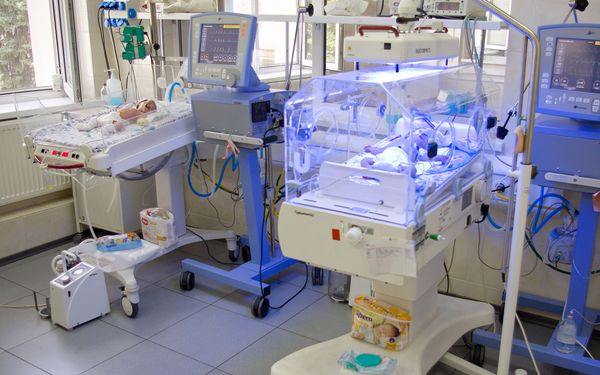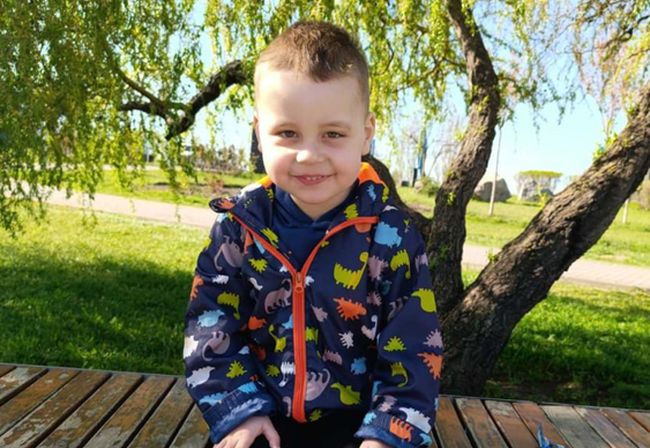
I have been in contact with some children in an orphanage in Zaporozhye for several years, thanks to the Happy Child website. I have formed a relationship with one child in particular, Anton, who lives in Internat 3. In my efforts to stay in contact with him, and hopefully to make a difference in his life, I have travelled to Ukraine twice. Albert Pavlov and his organization have been most gracious and helpful to me during these visits.
My most recent visit occurred several weeks ago, I am a potter by profession, and in an effort to connect with the children, I brought a small portable potter’s wheel with me, so I could demonstrate my craft for the kids and let them experience working with clay for themselves. Despite my research, I could not find a place that sells clay in Zaporozhye, although I did learn that clay is mined there for industrial purposes. But I was unwilling to travel on the plane with the quantities of clay I would have needed. I put this problem to Albert, and he suggested that we might be able to find and dig clay there.
Deciding to travel without a certain source of clay was an act of faith (or folly) on my part, but it worked out in a surprising way. Despite his busy schedule, Albert graciously offered to drive me around Zaporozhye to seek clay, and I found myself in parts of the city I had never before visited. We went from construction site to construction site, and were having no luck. A little discouraged, we headed back to Albert’s apartment. Lo and behold, we found clay there! A small pile of leftover earth from some construction turned out to be clay suitable for my purposes.
I was able to do some work in clay with the kids at Orphanage 3 where Anton lives. They really loved it and we had a great time. But I wanted to experience a different orphanage. Albert suggested that we visit Detske Dom Vladimarova, on the outskirts of Zaporozhye, an orphanage for kids with mental disabilities, and I agreed.
Albert called ahead to make sure they were ready for me, and we drove to the orphanage without the wheel but with the newly-acquired clay. We were greeted graciously by the director, who seemed genuinely happy and excited to see us; she explained that they don’t get many visitors. She took us on a tour of their facility and showed us the improvements that were underway there. Among the projects was a set of rooms to house some kids from the Kalinovka orphanage who are very sick and will benefit from being nearer to the city and better medical facilities. She also very graciously fed us lunch. We met some of the little kids, who swarmed around us and were eager for any kind of human contact.
Albert could not stay, but I wanted to stick around to do something with the kids, so I was led to an arts and crafts room prepared with a paper-covered table and a sink. I pulled out the clay and improvised a lesson in hand-building clay pots on the spot for about 15 of the children. They were all very -behaved, and seemed really to appreciate the opportunity to work with the clay. After we finished our projects, I inquired about how to return to the center of the city via the little busses called marshutkas. Instead, I was surprised and grateful to be told that a car would be found to drive me back.
My return visit to the Detske Dom the next day was even more interesting and gratifying than the first. I took the portable pottery wheel with me this time, along with some more clay, all packed in a small suitcase with rollers. Travel on these marshutkas is always a minor adventure, more so when you are lugging something heavy and unwieldy. Despite following the directions I had been given to take a certain number bus from the center of the city, the driver told me it was the wrong bus, and directed me to a different one. Once I found the correct one, I explained to the new driver where I wanted to go. The driver and some of the passengers had a little conference about where the orphanage was and how to get me there, and the driver finally told me he would let me know when to get off. I am convinced that the driver went out of his way to drop me at the gate of the school. Little kindnesses like this happen all the time in Ukraine and are part of what makes me keep coming back.
I arrived at the school, found the director’s office, and told her I was ready for the kids. No, the director told me, not yet. “First we have the performances!” Some important guests arrived - I had no idea who they were, but you could tell they were important because they were dressed so sharply in suits and ties. We were led into an auditorium where all the kids assembled, and then the production commenced, with songs, recitations, and little skits, all by the kids. I was introduced along with the other guests, but fortunately they did not ask me to speak!
This was great to see, but once it ended I was ready to spend some time with the kids. No, I was told, now it was time for lunch! I was taken into a small room with the other guests, where we were fed a beautiful lunch of bread, cheese, sausages, fruit, and drinks. Toasts were offered all around, and I attempted to make conversation with my limited Russian. The lunch ended with a box of Ukrainian chocolates being passed around. Delicious!
Finally, I was allowed to work with the kids. I was taken back to the art room, where I set up the wheel, and the children (older ones this time) filed in. It is hard to describe their reaction when they first saw my demonstration on the wheel. It was clear that they had never seen anything like this. They were enthralled. That moment alone was worth the whole trip. I spent some time working with them individually, and they were each able to make a pot with a lot of hands-on assistance from me. The kids were so excited, they started giving me gifts of their own, little fabric embroideries they had been working on. The session ended happily, with goodbyes and hugs. I was again not allowed to take the marshutka; an older gentleman drove me in his car back to the city.
I should mention at this point that I am not fluent in Russian. I speak enough to greet people, ask some limited directions, and express some pleasantries. And so you may ask how I am able to communicate with the children. The answer I have found is that a universal language comes into play when ordinary communication is not possible. Gestures and smiles go a long way. Also, even a limited command of a language can help to get points across. I learn more Russian every time I visit, and I find it invigorating and challenging to communicate, not frustrating. Also, the children are eager teachers.
I was, and continue to be, amazed at the wonderful experiences I have in Zaporozhye visiting the orphans. If a fellow American were to ask me if they should go, I would say, definitely yes! But don’t go without a plan. Have something to offer: music, art, sport, or something else that will inform or divert the kids. Make your own arrangements for housing; don’t expect that it will be provided. Although I often find people seem to want to feed me, don’t expect that will always be the case. There are many good and very inexpensive restaurants, cafes, and outdoor food venders. Make contacts ahead of time. Know who you will see and what you will do when you get there.
Second, while you should make plans, don’t expect that things will happen exactly as planned. I find that the way things unfold is often better than anything I had originally planned. Don’t expect that creature comforts, such as air conditioning and western-style toilets, will always be available.
Don’t bring a lot of stuff with you. Everything you might need is available in the markets and bazaars, and many western- style shops, often cheaper than at home.
Very few people you meet will know English. Learn at least a little Russian; it shows that you respect the people and culture, and it will allow you to function on a basic level. Don’t be afraid to walk around and talk to people.
In closing, I want to say that my purpose for visiting has been to give to the kids, but I always end up getting more that I give. This is not merely a little rhetorical figure of speech. It is actually true, and a little hard to accept sometimes. I go expecting to endure hardships, and sacrifice time and effort, but I always leave immeasurably enriched.



